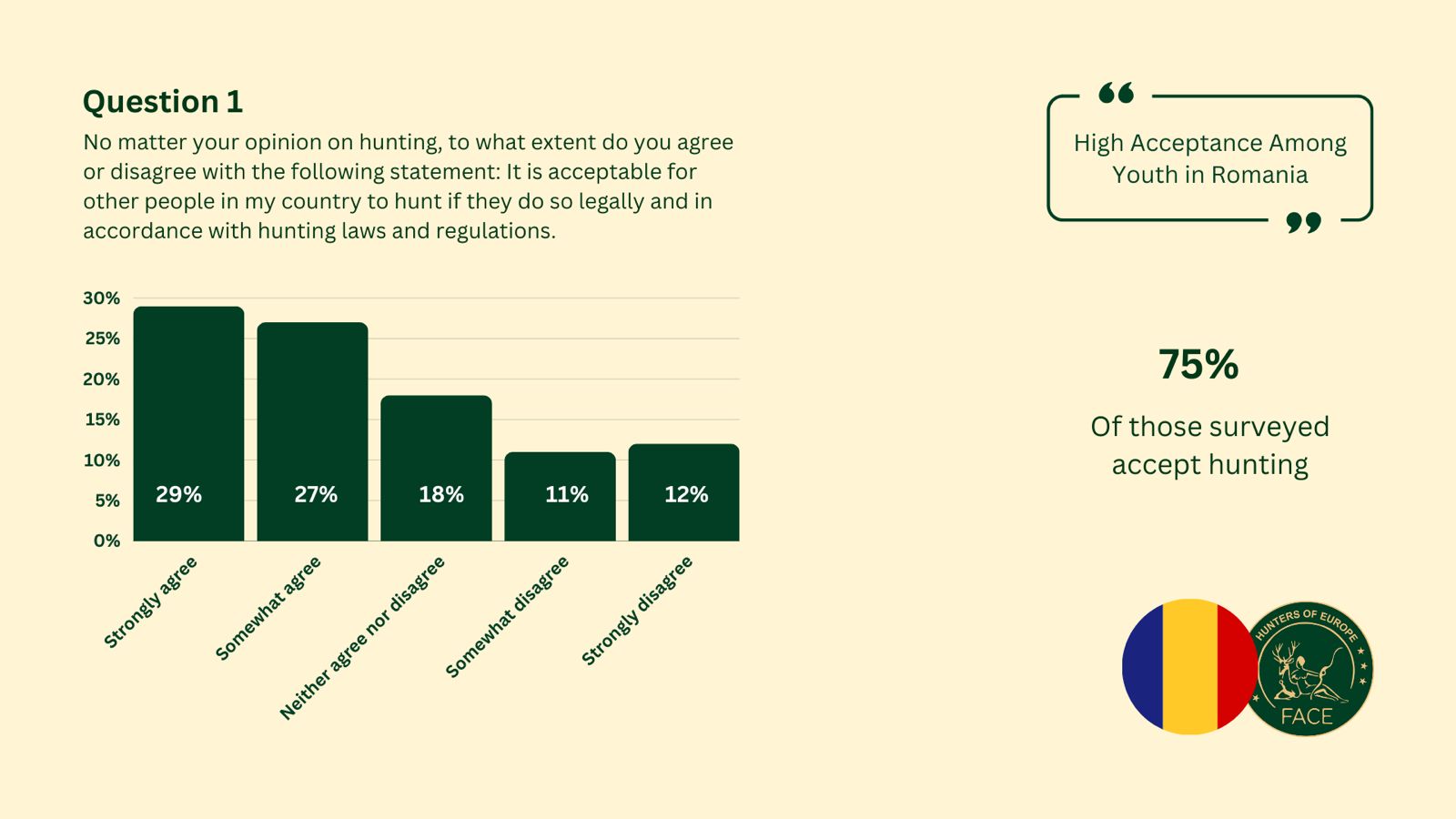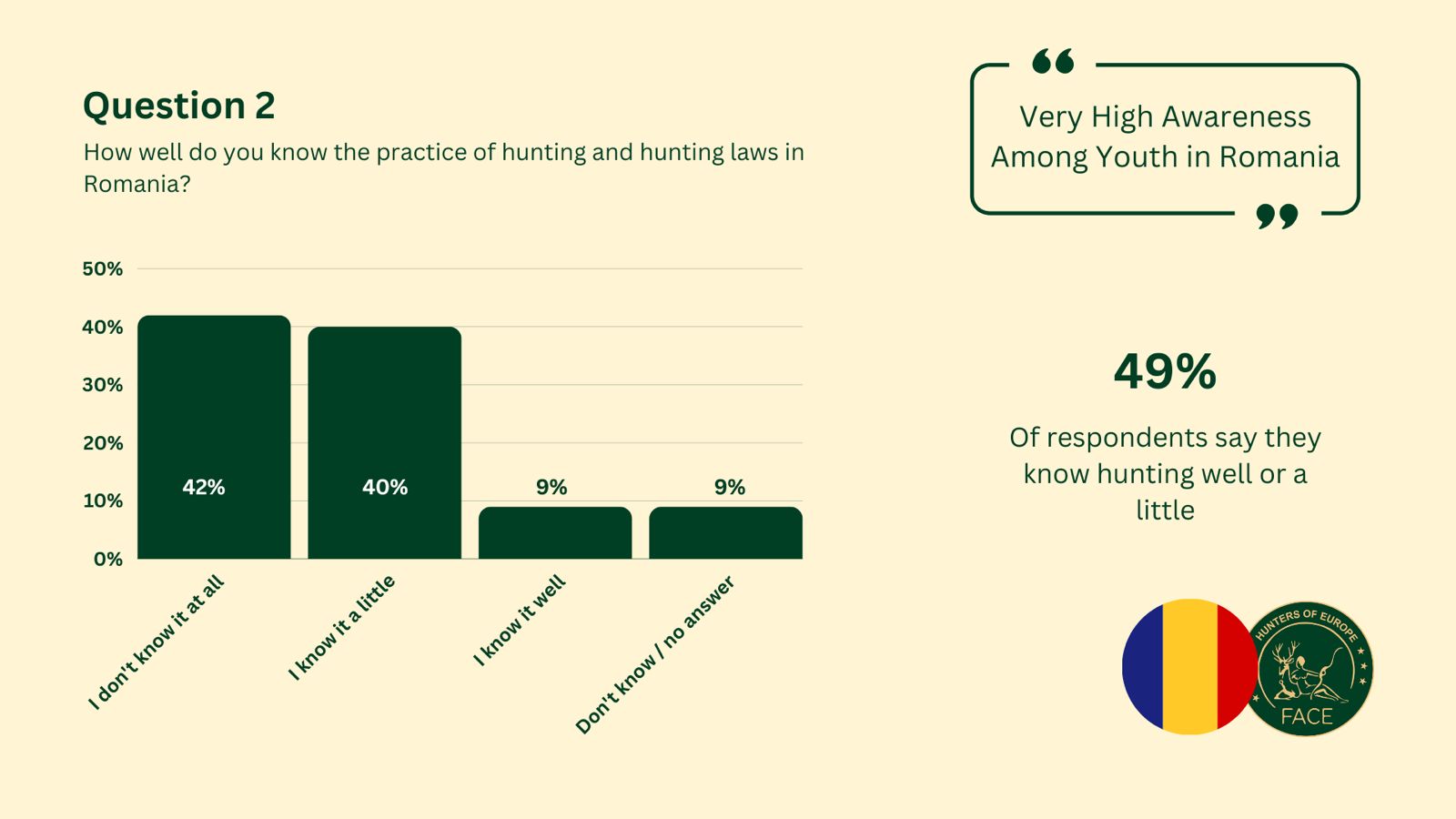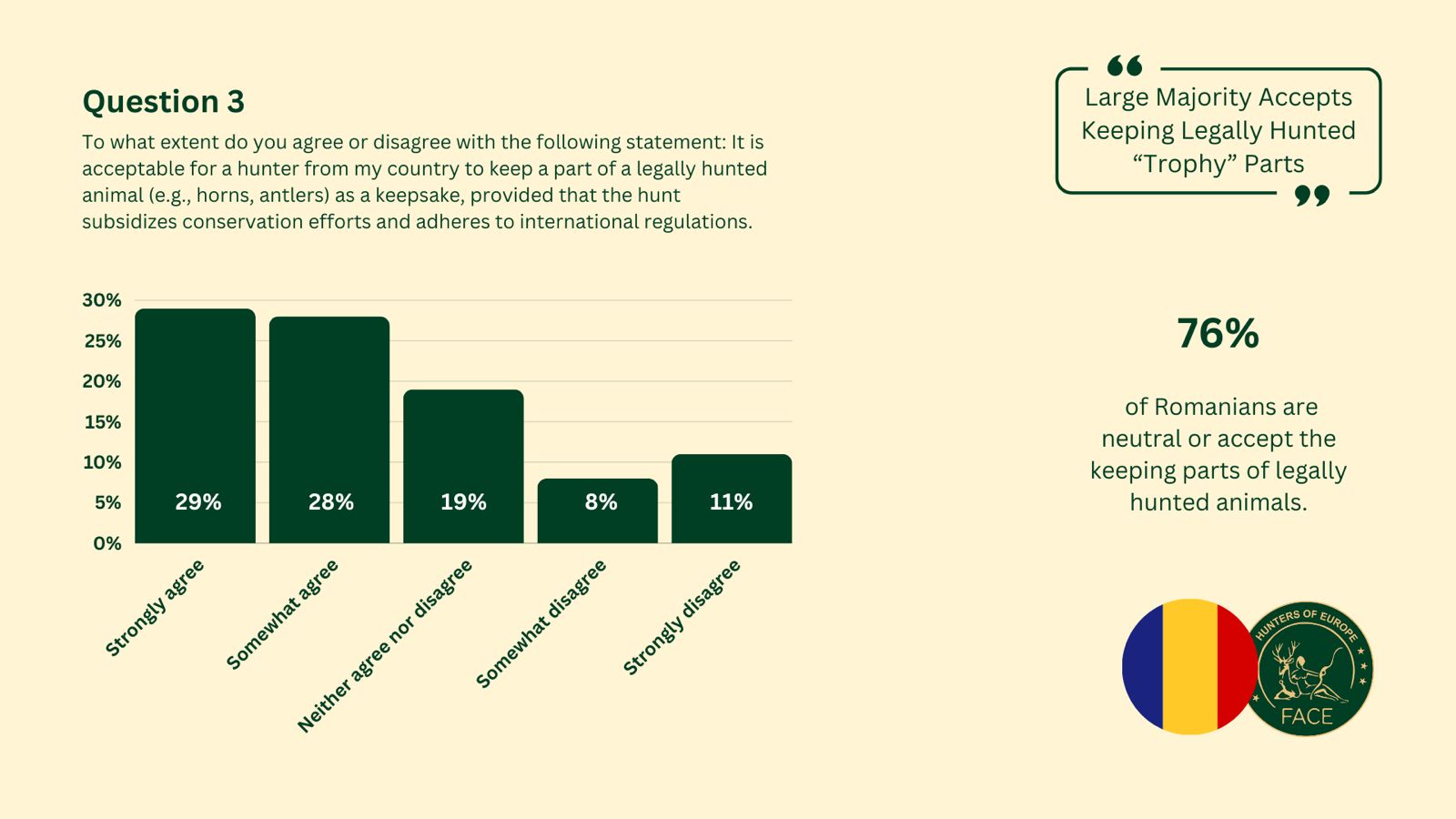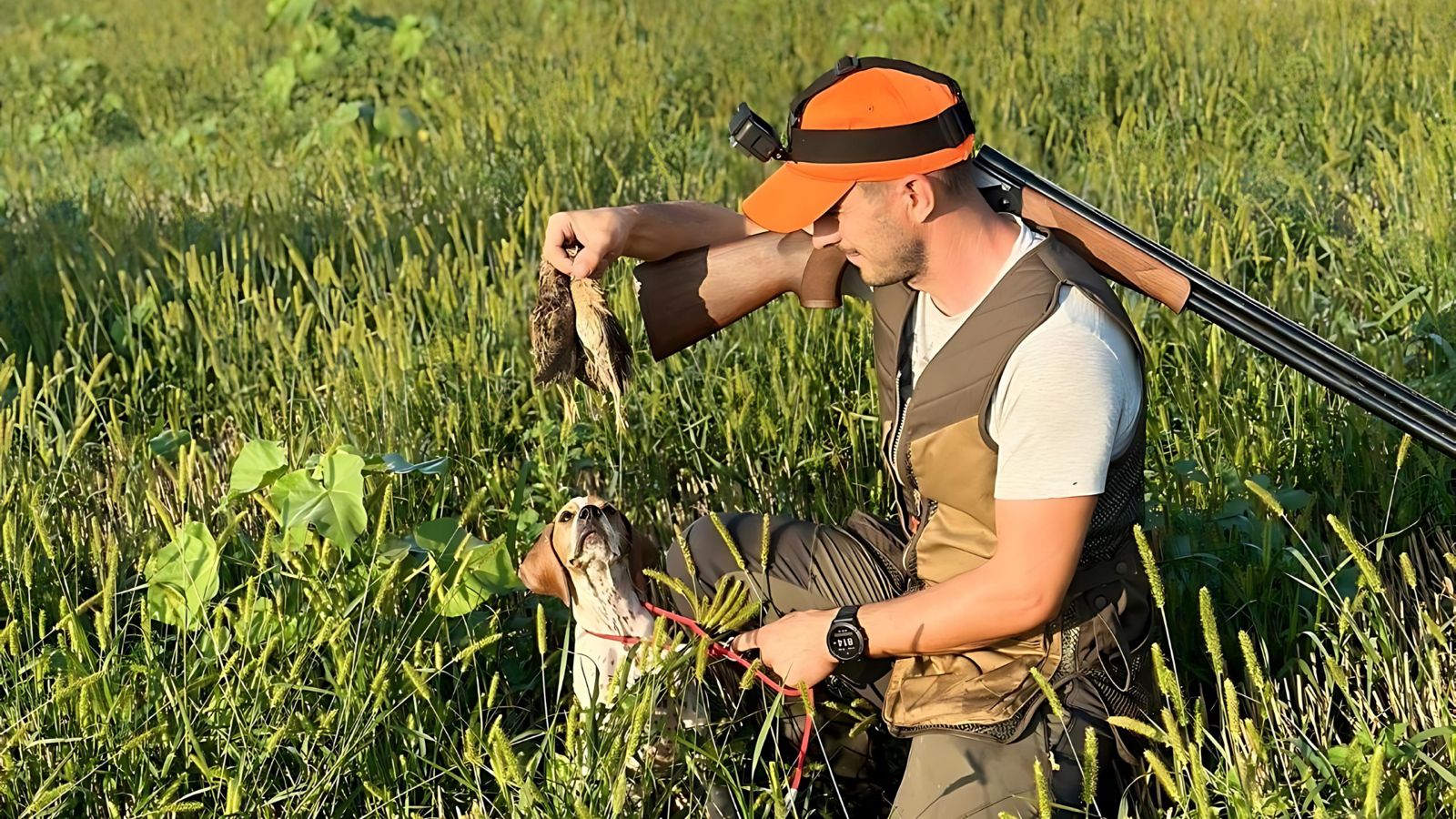
08 Jun 2024 High Acceptance of Hunting and Knowledge Among Romanian Youth
Bucharest, July 8, 2024 – A recent survey commissioned by the General Association of Hunters and Anglers from Romania (Asociația Generală a Vânătorilor și Pescarilor Sportivi din România) reveals that Romanian youth exhibit greater knowledge and acceptance of hunting practices than many of their European counterparts. This positive trend underscores the promising future for sustainable wildlife management in Romania.


Key Findings:
Youth Engagement:
-
-
- Superior Knowledge: 18% of respondents aged 18-24 are familiar with hunting laws and practices, significantly higher than the European average.
- Broad Acceptance: 77% of young adults (18-24) agree with the principles of legal and regulated hunting, showcasing a proactive stance towards conservation and wildlife management.
-
General Acceptance:
-
- Widespread Agreement: The survey highlights a strong overall acceptance of hunting in Romania, with 75% of respondents agreeing that hunting is acceptable if conducted legally and ethically.
- Gender Variations: Men display higher levels of familiarity and acceptance compared to women, suggesting targeted educational initiatives could further enhance public engagement.

Bear Management Challenges:
Romania is home to a large population of European brown bears, resulting in frequent human-wildlife conflicts. Another recent survey indicates that the local population has a low tolerance for these interactions, with many supporting hunting as a viable management solution. This context is crucial for understanding public opinion on wildlife management and the importance of evidence-based strategies.
A recent paper from the University of Bucharest(1) highlights several key points:
- Insufficient Evidence-Based Actions: Many current management actions lack a strong evidence base, leading to continued conflicts and decreased public tolerance.
- Public Perception: There is a significant lack of confidence in the decisions made by wildlife authorities, particularly among those living in areas with high bear activity.
Effective Management Strategies:
Key management actions include:
- Human Activity Restrictions: Measures to limit activities that encourage bear habituation, such as waste management and feeding restrictions, are seen as effective by 55% of respondents.
- Intervention Protocols: Strategies for managing problem bears in human settlements are positively recognized by 42.1% of respondents.
Conclusion:
Both of these surveys combined demonstrate the critical role of Romanian youth in understanding and accepting sustainable hunting practices. Integrating these insights can enhance the coexistence between humans and large carnivores in Romania.
FACE urges policymakers and conservationists to leverage the positive engagement of Romanian youth in hunting and to address large carnivore management with evidence-based actions. By doing so, Romania can lead Europe in effective wildlife management and conservation.
For more information and to participate in upcoming conservation initiatives, visit AGVPS Romania and FACE.
[1] Neagu, A. C., & Rozylowicz, L. (2024). Insufficient scientific evidence hinders large carnivore management in Romania. University of Bucharest, Faculty of Geography. Retrieved from https://ssrn.com/abstract=4838613
FACE’s Commitment: FACE is dedicated to fostering informed conversations about hunting and conservation. Recognising hunting as an integral part of sustainable conservation practices, FACE encourages a dialogue based on understanding and solid evidence.
Looking Ahead: These survey results serve as a crucial consideration for policy development and our community discussions around hunting and wildlife management. FACE advocates for policies that reflect the public’s support and understanding, aiming for a future where hunting is synonymous with conservation and cultural heritage.
About FACE: FACE is committed to the conservation of wildlife through sustainable hunting, advocating for hunting traditions, and promoting biodiversity conservation across Europe.
For more information, please contact:
Tristan Breijer – FACE Policy Advisor Email: tristan.breijer@face.eu

